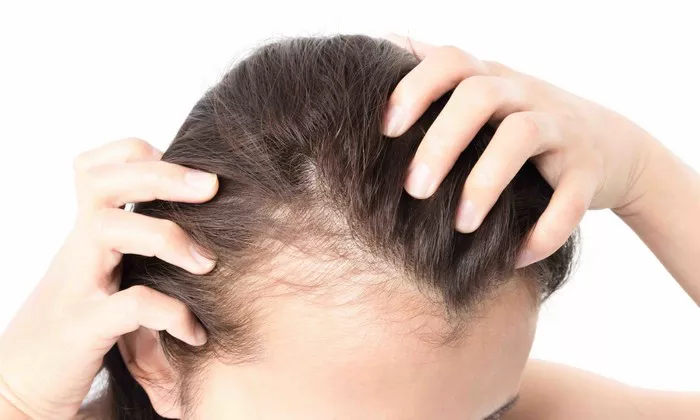Hair thinning is a common concern that affects individuals of all ages and backgrounds. It can be a source of frustration and lowered self-esteem, often stemming from various factors, including genetics, aging, and lifestyle choices. In this article, we’ll delve into the specific deficiencies that can contribute to hair thinning and provide a comprehensive guide on how to address them. Understanding the role of these deficiencies is crucial for maintaining healthy, luscious locks.
Iron Deficiency – A Silent Culprit
Iron deficiency, also known as anemia, is a major contributor to hair thinning. When your body lacks sufficient iron, it can lead to reduced blood circulation to the hair follicles, causing them to weaken and thin over time. Here’s how this deficiency affects your hair:
1. Impact on Hair Growth: Iron plays a pivotal role in transporting oxygen to the hair follicles. Without adequate oxygen, the follicles struggle to produce healthy hair.
2. Symptoms to Watch For: Fatigue, pale skin, and brittle nails are common signs of iron deficiency. Regular blood tests can help diagnose this condition.
3. Dietary Solutions: Include iron-rich foods like lean meats, beans, and leafy greens in your diet. Iron supplements may be recommended by a healthcare professional.
4. Long-term Benefits: Treating iron deficiency can help restore hair thickness and vitality.
See Also: Is There Any Way to Stop Genetic Hair Loss: A Complete Guide
Vitamin D – A Sunshine Vitamin for Your Hair
Vitamin D deficiency is increasingly linked to hair thinning. Known as the “sunshine vitamin,” it plays a significant role in hair health. Let’s explore how vitamin D influences your locks:
1. Hair Follicle Stimulation: Vitamin D supports the growth and differentiation of hair follicles, ensuring they remain healthy and active.
2. Symptoms to Watch For: Fatigue, muscle pain, and frequent illness can be indicators of low vitamin D levels. Blood tests can determine your status.
3. Boosting Vitamin D: Spend time outdoors to absorb natural sunlight, and consider dietary sources like fatty fish, eggs, and fortified foods.
4. Hair Benefits: Adequate vitamin D levels promote thicker, stronger hair, reducing the risk of hair thinning.
Omega-3 Fatty Acids – The Power of Healthy Fats
Omega-3 fatty acids are essential for overall health, and they also have a profound impact on hair thickness. These healthy fats support hair growth in several ways:
1. Scalp Nourishment: Omega-3 fatty acids promote a healthy scalp, which is essential for robust hair growth. They reduce inflammation and enhance blood circulation in the scalp.
2. Adequate Intake: Include fish like salmon and mackerel, flaxseeds, and walnuts in your diet to boost your omega-3 intake.
3. Hair Growth: These fats strengthen hair follicles, making your hair less prone to thinning and breakage.
Biotin – The B Vitamin for Hair Health
Biotin, a B-vitamin, is renowned for its role in maintaining healthy hair. When it comes to addressing hair thinning, biotin is a key player:
1. Promoting Hair Growth: Biotin aids in the production of keratin, the protein that constitutes your hair. It strengthens hair strands and fosters growth.
2. Dietary Sources: Foods like eggs, nuts, and whole grains are rich in biotin. Supplements are also available.
3. Preventing Hair Thinning: A regular intake of biotin can help reduce hair thinning and boost hair volume.
Zinc – A Mineral with Hair-Thickening Potential
Zinc is a trace mineral that supports various bodily functions, including hair health. Here’s how it can help prevent hair thinning:
1. Follicle Support: Zinc plays a crucial role in maintaining the structural integrity of hair follicles, keeping them strong and active.
2. Signs of Deficiency: Hair loss, a dry, flaky scalp, and slow hair growth can signal a zinc deficiency.
3. Dietary Inclusion: Consume foods like oysters, beef, and pumpkin seeds to increase your zinc intake.
4. Hair Restoration: Adequate zinc levels can contribute to thicker, healthier hair and prevent further thinning.
Conclusion:
Hair thinning is a distressing condition, but it’s often reversible by addressing the deficiencies that contribute to it. Iron, vitamin D, omega-3 fatty acids, biotin, and zinc all play vital roles in maintaining healthy, thick hair. By understanding the impact of these deficiencies and taking steps to correct them through dietary adjustments and, if necessary, supplementation, you can restore your hair’s thickness and regain your confidence. Consult with a healthcare professional to determine the most appropriate approach to tackle your specific hair thinning concerns. Remember, healthy hair starts from within.


